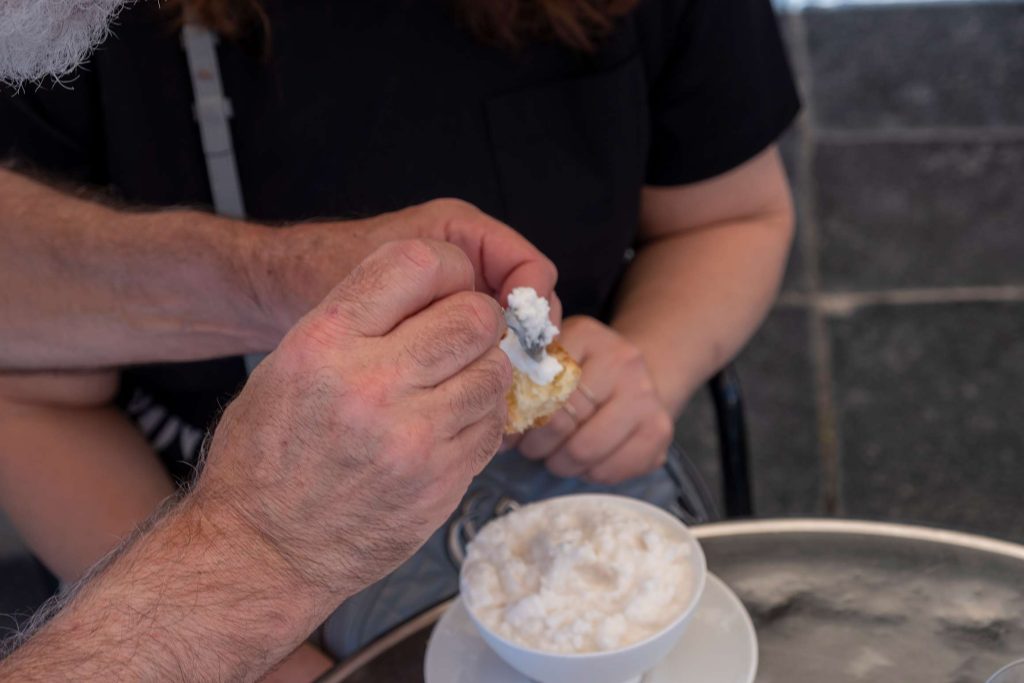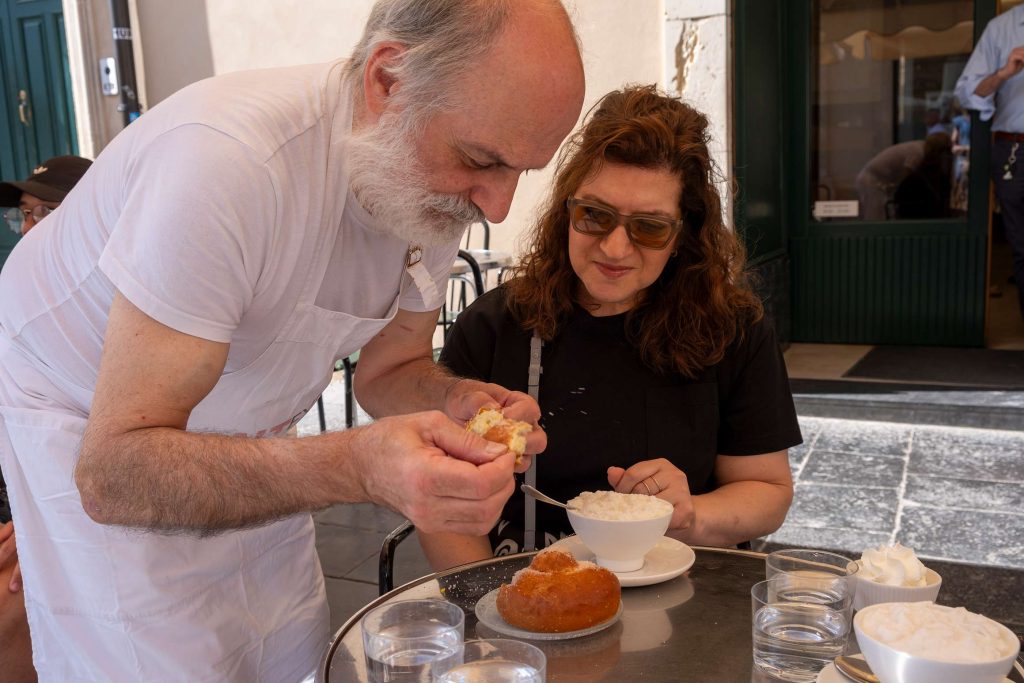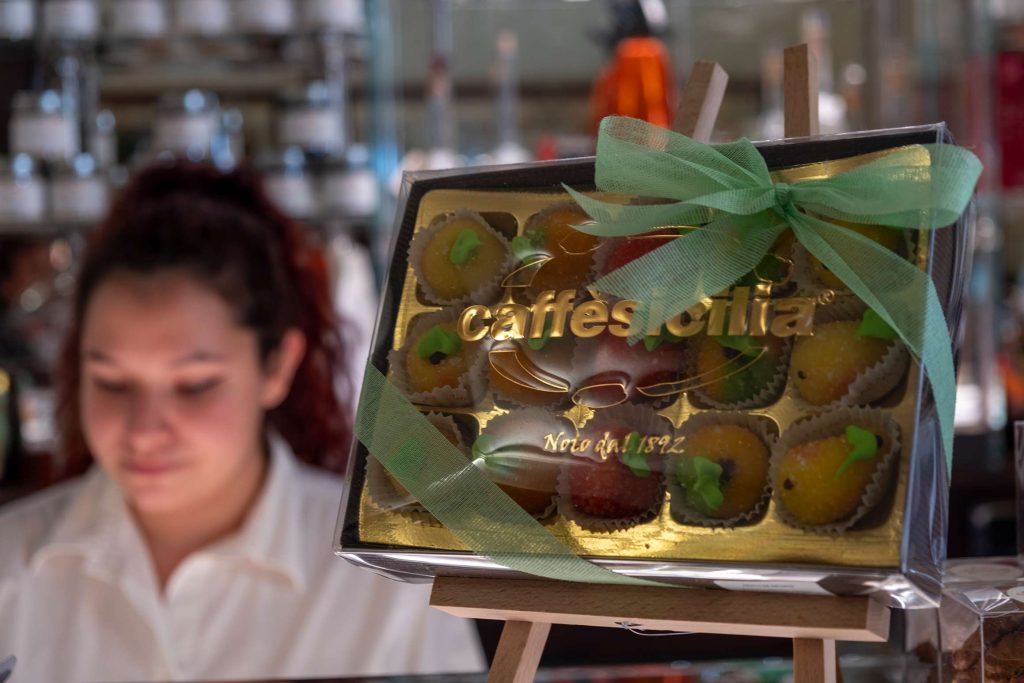Beyond Tradition: A Morning with Sicily’s Master Pastry Chef
Words by Ruba
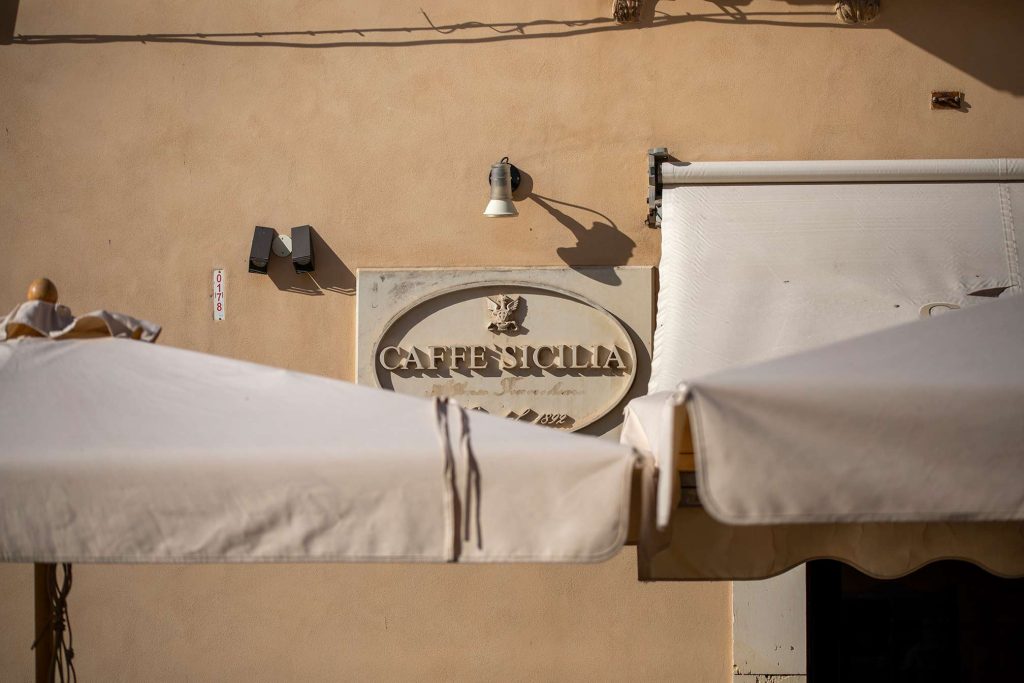
It’s eight o’clock on a balmy spring morning in the baroque town of Noto. Shopkeepers are opening their shutters on the main street of town as I approach the unassuming shopfront of Caffè Sicilia. The café’s limestone façade is bathed in sunlight, the shadows of potted fuchsia blossoms on a corbelled balcony above dancing across its surface.
This is Sicily’s most celebrated pastry shop where you can expect the art of confectionery at the highest level. Corrado Assenza, renowned master pastry chef and fourth-generation owner of Caffè Sicilia, greets me warmly and invites me to take a seat with him at one of the café’s outdoor tables, just as they’re beginning to fill up. Uniformed waiters carry out trays laden with coffee and freshly baked pastries and passersby greet him – “Buongiorno!” from the locals who know him well; warm, bright-eyed smiles from tourists who are enlivened to see the legend in person.
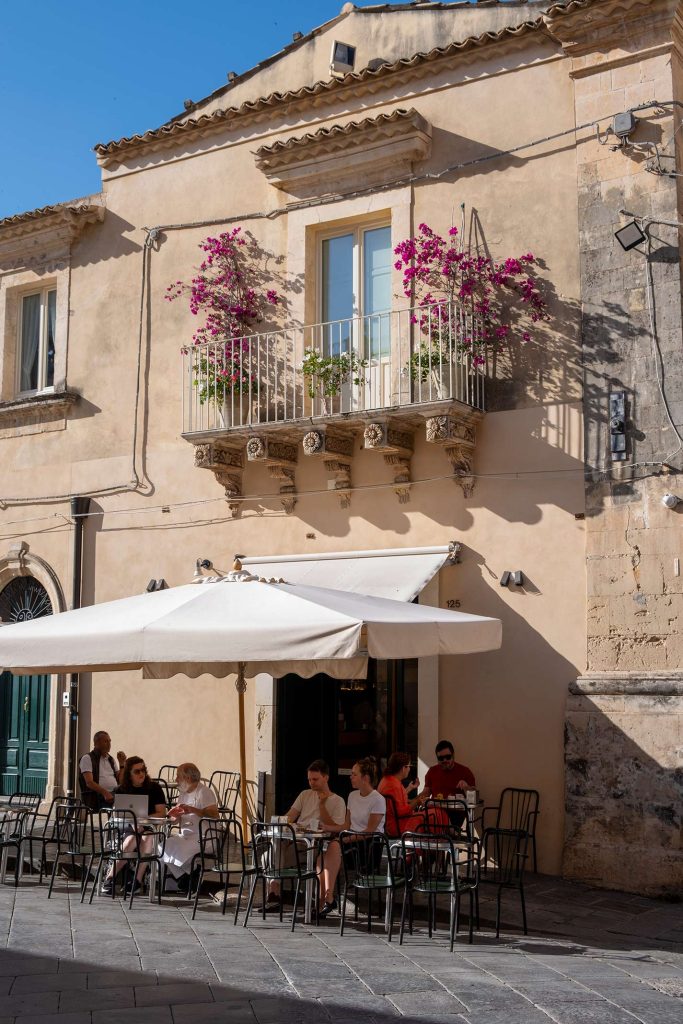
Assenza recalls the origins of Caffè Sicilia, telling me that when it was founded over a century ago, there existed only a local market and local producers, and everything would arrive at the café from the surrounding area. His family were farmers living in the country. His father had planted a garden with tomatoes, peppers, peaches, apricots, plums, thyme, violet and jasmine and Assenza had learned from an early age the care needed to grow and use ingredients.
When Assenza was a child, Caffè Sicilia was owned by his maternal aunt and entrusted to pastry chef Roberto Giusto. The café was his playground, where he would run to after school and where Roberto would give him chores in the kitchen and talk to him about life in Noto and at Caffè Sicilia. At seventeen, Assenza left to study agriculture in Bologna, where he met his future wife and lived for several years until his sick aunt could no longer manage the café. He made the decision to return to Noto and worked under Roberto’s tutelage, learning that to be a good pastry chef one must first understand the ingredients and respect the land from where they come, values that his father had instilled in him as a young child.
It was Assenza’s commitment to continue working by these values that helped Caffè Sicilia survive the most difficult of times, including when the commercialization of agricultural lands led consumers to prefer preserved over fresh foods. Determined to prove to customers that there is a difference between a commercial product and a fresh one, Assenza had turned to the coveted Sicilian apricot. The recipe for apricot marmalade had remained the same at Caffè Sicilia for 125 years but Assenza decided to reduce its sugar content to make it more current and to respect and bring out the superior taste and quality of the fruit. He began to do the same with all other Caffè Sicilia recipes and reevaluated his idea of agency for change. This proved a success. “I never use the word tradition,” he tells me. “It’s not interesting, it’s a commodity. The secret is culture in the place of tradition. Tradition is something that is not necessary because it does not give you the possibility to change. If you apply culture in place of tradition, you can change and improve and achieve the highest quality,” he firmly states.
Assenza is a busy man, yet he is generous with his time. When my granita e brioscia – Sicily’s most enduring breakfast tradition – arrives, and to ensure that I perform the ritual of eating it correctly, he tears a piece of the sweet bun with his own hands, scoops up the first bite full of the accompanying almond-flavoured, semi-frozen dessert, and hands it to me. The icy treat is dense and creamy; the taste of the sweet nut is robust, not overpowering. Sicily’s precious Romana almonds, in fact, feature prominently on Caffè Sicilia’s menu, their higher percentage of fat producing softer products. “My cultural approach is made and based on the use of local almonds,” he informs.
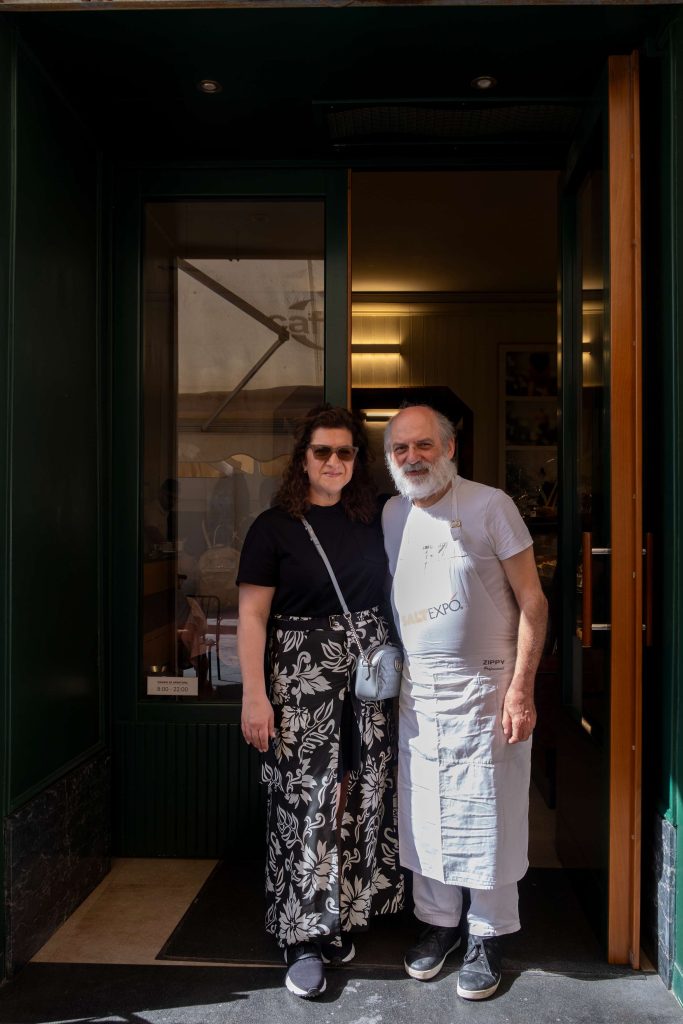
Today, Assenza continues to be a champion of the raw materials of his land and is widely respected for his commitment to sourcing ingredients from local producers and using them in a way that brings out their natural flavour and quality to produce the best versions of quintessential Sicilian pastries and sweets. When I ask him about the longevity of Caffè Sicilia, he replies: “The secret to the success of Caffe Sicilia is the same secret to the success of cannolo and cassato (Sicily’s most historic and beloved desserts). It is to allow culture to drive across time. Caffe Sicilia is a historical place with one century of life that is now in its 5th generation. Each generation brings their own contemporary touch according to people’s tastes, products available, etc. So we live and work in the contemporary while having the roots in the past but the mind and the eyes always looking to and working for the future.”

